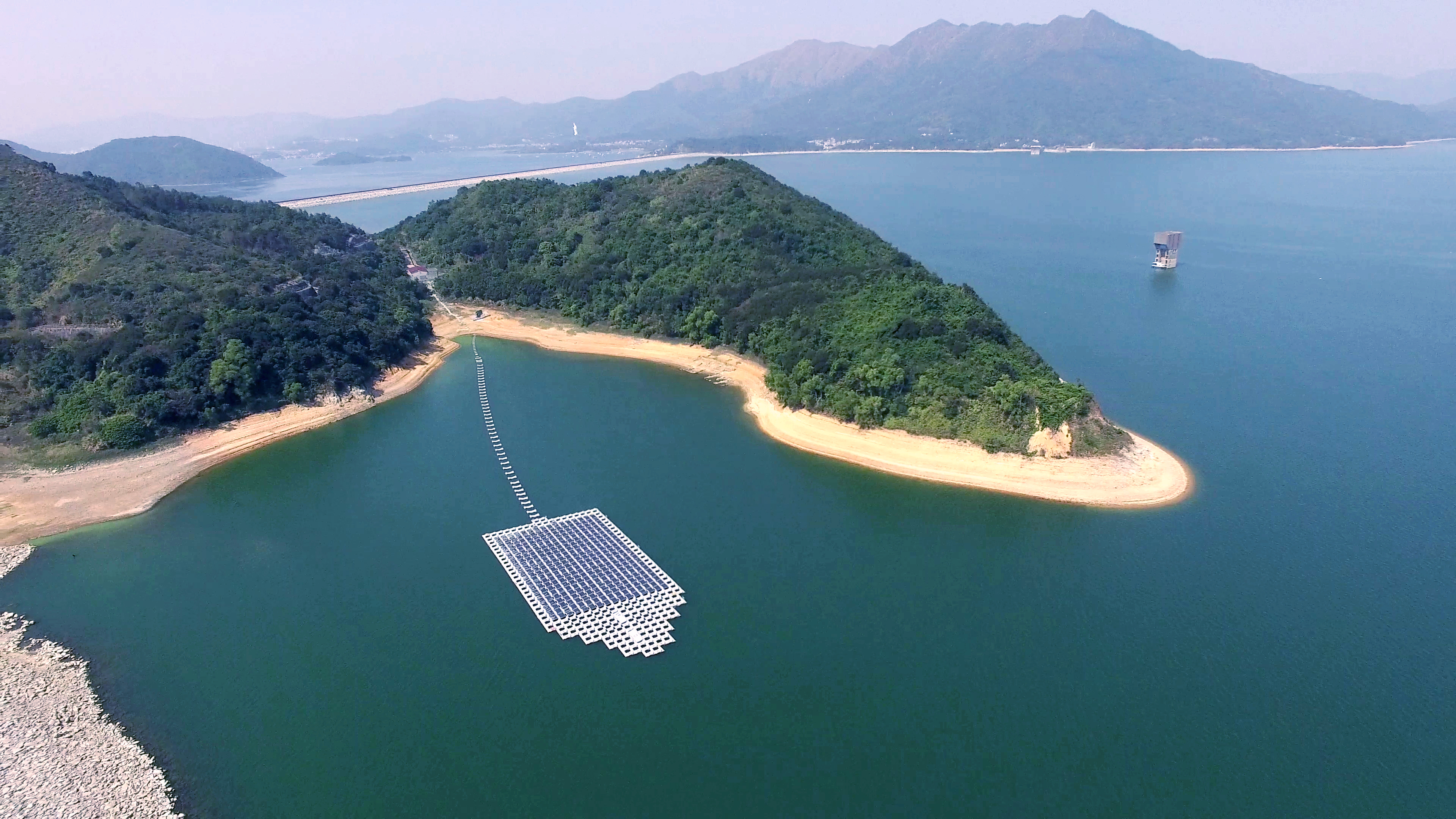The past few years have seen growing deployment of floating photovoltaic (FPV) systems on reservoirs and ponds overseas. Apart from harvesting renewable energy from the sun, there are additional benefits of installing such systems over the reservoir surface, which include reducing water evaporation, suppressing algae growth, saving precious land resources and yielding a higher solar panel power generation efficiency.
At present, there are 17 impounding reservoirs in Hong Kong, but not all of them would be feasible to install FPV over their water surface. Apart from technical requirements, we have to take into account the ecological and environmental as well as landscape impacts since most of these reservoirs are located in the protected scenic areas of the country parks. In order to explore the potential of installing FPV systems on reservoirs, we have implemented three small-scale pilot projects at Shek Pik Reservoir, Plover Cove Reservoir and Tai Lam Chung Reservoir, each of which will be designed for a generation capacity of 100kW. Each of the system can generate as much as 120,000 units (kilowatt-hours) of electricity annually. The amount of electricity generated is equivalent to the annual electricity consumption of 36 average households with a reduction of 84 tonnes of CO2 emission. These three pilot projects will lay a solid foundation with some useful reference data for the future implementation of large-scale FPV farms on reservoirs in Hong Kong.
FPV system at Shek Pik Reservoir
The first pilot system has been successfully installed at Shek Pik Reservoir in February 2017 for supplying electricity to the nearby pumping station of the reservoir. The current output and cumulative output are as below:










